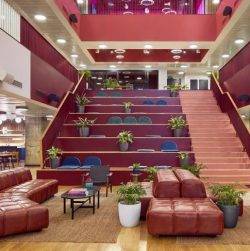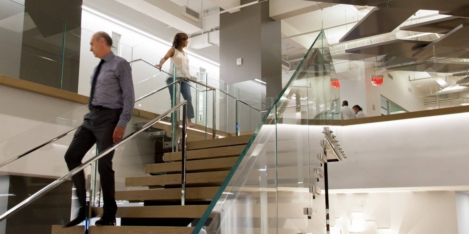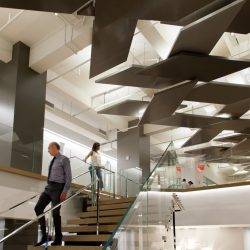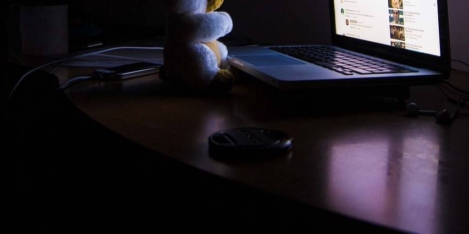May 24, 2018
Gallery: WeWork announces the opening of its flagship location in India
 WeWork has announced its first flagship Indian location in Bengaluru. WeWork Galaxy is located on the site of the former Galaxy Theatre, and features a rooftop terrace with a pool and gym in addition to a mix of shared and private offices, which are designed around a 5-storey communal atrium. Bengaluru is India’s tech capital and one of the country’s leading cultural and economic hubs and so WeWork see it as a perfect fit for their coworking model. Created by the in-house design team, the goal was to create a space that ‘felt open, yet communal and intimate for members and guests, by creating individual programming and design moments within the atrium space’.
WeWork has announced its first flagship Indian location in Bengaluru. WeWork Galaxy is located on the site of the former Galaxy Theatre, and features a rooftop terrace with a pool and gym in addition to a mix of shared and private offices, which are designed around a 5-storey communal atrium. Bengaluru is India’s tech capital and one of the country’s leading cultural and economic hubs and so WeWork see it as a perfect fit for their coworking model. Created by the in-house design team, the goal was to create a space that ‘felt open, yet communal and intimate for members and guests, by creating individual programming and design moments within the atrium space’.







 UK businesses are already one of the top employers of short contract “gig workers” at an international scale and with Brexit just around the corner, a new
UK businesses are already one of the top employers of short contract “gig workers” at an international scale and with Brexit just around the corner, a new 








 With companies holding ever greater amounts of data and facing heightened scrutiny through social media, employers need to consider the wider implications of their business decisions. This was the message of the President of the
With companies holding ever greater amounts of data and facing heightened scrutiny through social media, employers need to consider the wider implications of their business decisions. This was the message of the President of the 















May 18, 2018
The toxic workplace is not only about culture, but is a very real physical problem
by Johanna Ljunggren • Comment, Environment, Workplace design
More →